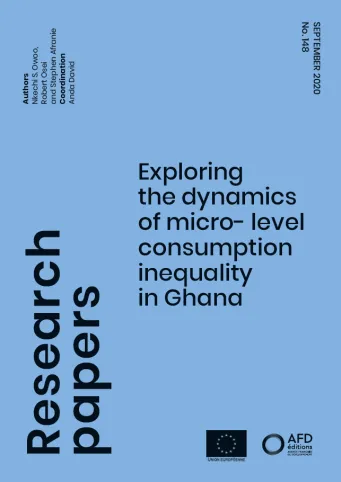Share the page
Exploring the dynamics of micro- level consumption inequality in Ghana
Published on

Despite the country’s recent impressive growth record, inequality remains a pressing concern in Ghana as the benefits of higher incomes are not being evenly distributed. Existing micro-level studies on inequality have comprised sub-group decomposition and decomposition of income by factor components. More recently, regressionbased micro-level analyses have become more preferred as they address inherent weaknesses in earlier decomposition exercises. The lack of distinctive constructs for poverty and inequality however makes it difficult, if not impossible, to assess both measures clearly and independently. Although poverty and inequality are related concepts, they are by no means identical and the use of welfare ratios and household per capita expenditures as proxies for both is inadequate as it endorses the usage of similar policy interventions. In this paper, we propose another measure of inequality at the micro-level. Household deviation scores are derived from the family of generalized entropy inequality easures, with greater deviation scores from the population mean indicative of greater microlevel inequality.
Useful Information
-
Authors
-
Nkechi S. OWOO, Robert OSEI, Stephen AFRANIE
-
Coordinators
-
Edition
-
148
-
Number of pages
-
36
-
ISSN
-
2492 - 2846
-
Collection
-
Research Papers
